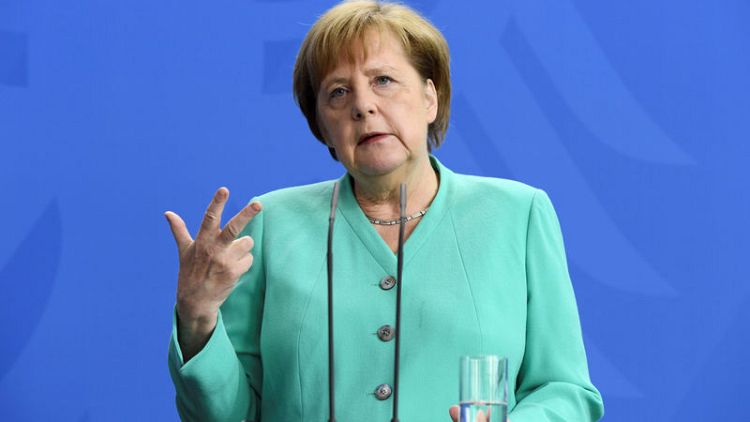BERLIN (Reuters) - German Chancellor Angela Merkel denied speculation on Tuesday that she would resign before the end of her term in 2021, quashing media reports suggesting she would announce her intentions at a conservative party meeting in June.
Merkel, widely seen as an anchor of stability in Europe for the last 14 years, handed over the leadership of her Christian Democrats (CDU) in December in response to growing criticism of her handling of the migrant crisis and its consequences.
Although she wants to remain chancellor until the 2021 national election, speculation is rife that she may go sooner. So far Merkel, 64, has choreographed a gradual exit with her protege, Annegret Kramp-Karrenbauer, elected CDU chief.
Asked at a news conference whether she planned to make any announcement about her future at a June 2-3 party meeting, Merkel said she would "answer that with a clear no".
The latest media speculation was triggered by the sudden announcement of the CDU meeting, due to take place just days after European Parliament elections in which the conservatives are expected to remain the biggest party.
The CDU has said the meeting would address how the work of the coalition between the conservatives and Social Democrats (SPD) needed to adapt to new tax estimates, expected to be lower than previous forecasts, which will be available by then.
While relations between Merkel and Kramp-Karrenbauer, dubbed "mini-Merkel", are good, the new CDU leader is trying to make her own mark by holding workshops on policies, including the hot topic of migration. She has also tried to appeal to the traditional values of some more conservative voters.
Four German states also hold elections this year, including three in the formerly communist east of the country.
(Reporting by Andreas Rinke; Writing by Madeline Chambers; Editing by Mark Heinrich)
